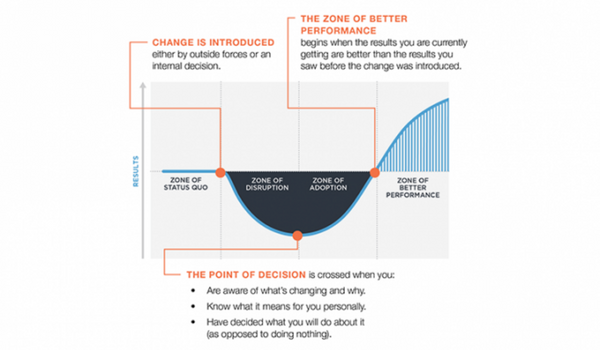|
Welcome to the age of Artificial Intelligence (AI)! It’s a thrilling time in the hospitality and travel sector, with AI reshaping the way we experience the world. For the leaders steering the ships in this vibrant industry, it’s time to embrace a fresh set of skills and mindsets. Let’s dive into the essential leadership competencies like curiosity, adaptability, growth mindset, creativity, and empathy, and explore why they’re the keys to success in our AI-driven world.
1. Curiosity: Curiosity isn’t just about asking questions; it’s about asking the right ones. It’s the spark that ignites innovation and exploration of AI’s endless possibilities. Imagine a hotel leader with a curious streak, delving into AI to discover chatbots that can make guest interactions smoother or data analytics that can fine-tune pricing strategies, giving their brand a unique sparkle in the market. 2. Adaptability: In the ever-evolving landscape of AI, being adaptable is like having a superpower. It’s about embracing the new and tweaking strategies to make the most out of the AI tools at our disposal. Take the airline industry, where adaptable minds are using AI to craft flight paths that save fuel and enhance passenger experiences, making the journey as enjoyable as the destination. 3. Growth Mindset: Having a growth mindset is like having a love affair with learning. It turns challenges into stepping stones, fostering a culture where exploring new AI applications is a thrilling adventure. A travel agency led by someone with a growth mindset might play around with AI to whip up personalized travel plans, refining their approach based on what they learn from customer feedback. 4. Creativity: Creativity is the magic wand that turns ordinary into extraordinary. It’s crucial for dreaming up novel ways to apply AI that captivate customers’ imaginations. A creative leader might envision an AI-driven concierge service that not only answers guest queries but also recommends experiences based on their preferences, adding a sprinkle of wonder to their stay. 5. Empathy: In a world buzzing with tech, empathy is the human touch that makes all the difference. It’s about balancing AI’s efficiency with a warm, human connection. Think of a hotel where leadership values empathy; they might use AI to speed up check-ins but also encourage staff to spend the extra time truly connecting with guests, creating unforgettable moments. Why These Competencies Matter in the AI Era Crafting Memorable Experiences AI opens up a treasure trove of opportunities to tailor customer experiences. Leaders blending curiosity, adaptability, and empathy can implement AI solutions that resonate with guests on a personal level, ensuring every interaction is a memorable one. Innovating with a Twist Leaders armed with creativity and a growth mindset are the architects of innovation, designing unique AI applications that set their organizations apart. By nurturing a playful and experimental culture, they’re not just keeping up with the competition; they’re redefining the game. Building a Better World Leaders who are adaptable and empathetic are the builders of a more sustainable and ethical future. They’re using AI to make smarter, eco-friendly decisions and ensuring that technology is used with respect and care for customer privacy and data. Wrapping It Up In the exhilarating world of AI, leaders in hospitality and travel need to be curious explorers, adaptable innovators, creative thinkers, lifelong learners, and empathetic connectors. These are the ingredients for leveraging AI in ways that enchant customers and pave the way for a future where technology and humanity dance together in harmony. Whether it’s a hotel creating magical guest experiences with AI or an airline finding smarter routes through the skies, the future is a canvas waiting to be painted by those ready to lead with creativity, curiosity, empathy, adaptability, and a growth mindset. So, let’s embrace these competencies and ride the AI wave to a future filled with wonder and possibilities!
0 Comments
I’ve never really considered myself a Tech person. My strongest school subjects were in the social sciences. I participated in the sciences out of necessity and never enrolled in computer science. However, somewhere along the way, I realized that digital technology had a super-power and it was going to make my personal and professional life easier. Both at home and at work I’ve leaned into technology to professionalize processes and systems and ultimately to invest in a return on time and money. In 2011, when we took over our family hotel business, we were using an outdated property management system, receiving online channel agency reservations by fax message and keying in credit cards one number at a time. We have spent the good of the last ten years upgrading all systems on our property to improve the employee experience, customer experience and our bottom line. Implementing technology improvements has not been all fun and games. I found out relatively quickly that technology usage is harder for some than others, that not everyone can see the advantages and that adapting to change is a process. I’ve made some mistakes and learned that it takes leadership to establish a vision, address resistance to new systems and manage the change process. Establish a vision You may think that the new system you will introduce is the greatest thing since sliced bread, but the people around you may have no idea why. When doing so, it is critical to demonstrate 1) the positive outcomes that will result for team members 2) how it will impact customers and 3) how the company as a whole will benefit. In her book, The Customer of the Future, Blake Morgan lays out the case for technology innovations and how necessary they are for the employee and customer experience. When employees don’t have the right tools and technology, engagement falls. The key to customer experience success is creating frictionless experiences and this is where technology either plays a role in creating or removing friction. A couple of years before the pandemic we started taking reservations at our restaurant and bowling lounge. Every reservation had to be taken by phone and email and then payments for deposits and the actual reservation had to be entered into the system manually at an on-site physical location. We finally bit the bullet and started a process to implement an online reservation process on our website. In doing so we would decrease the time staff spent taking and entering reservations, allowing them to do other things. We would be improving the customer experience because they had more control over the process and could complete a reservation in less time. And finally, we would no doubt book more reservations and maximize our overall occupancy and therefore financial bottom line. Address resistance At my hotel we are currently considering whether to implement cashless tipping for the housekeeping department. We are introducing this idea because we think it will pay off for housekeepers and increase their tips. We also believe it will make it easier for guests to tip when they want to. I’ve brought the idea to our housekeeping team, but the response was luke warm…and I get it. There’s something about cash and knowing you can stick it in your pocket. You can touch and feel it. There is a security to it. Switching to cashless tipping brings an unfamiliar system and uncertainty around when and how you will actually receive your money. The bottom line is that resistance comes from a deeper place of fear and those fears may not look the same for everyone. It is critical to uncover what they are for each person and address them by doing the research and answering questions. I have also found that it becomes a question of the tipping point: at what point does the opportunity of the change outweigh the “pain” or disadvantages of the status quo? Managing the change process: Managing the change process is for me the most challenging part. I am not a patient person and that impatience often threatens to blow the whole thing to smithereens. When we decided to move to a guest text messaging system which required a completely new software, I had been researching it for months, made a decision and I was ready the next day to execute. I ended up skipping over a bunch of steps and asked my team to roll out the usage of the new text messaging system on the Friday of a major peak ski weekend. Huge blunder….no surprise there. Here are the critical steps to take to ensure a smoother change process:
Technology innovations are critical to the success of any company to keep up with customer expectations and the competition. While it can be daunting, reflecting on your own mindset, that of your employees and engaging in the process above, it can be a lot easier to undertake.
|
AuthorRachel Vandenberg is a leadership coach living in Stowe, Vermont with her husband and three children. Rachel also owns and operates a hotel and attractions property with her family. She sits on the board of the local tourism association and also created a leadership retreat for women leaders in travel. Archives
July 2024
Categories
All
|




 RSS Feed
RSS Feed
